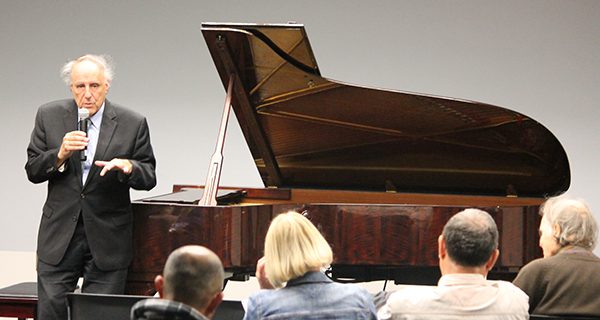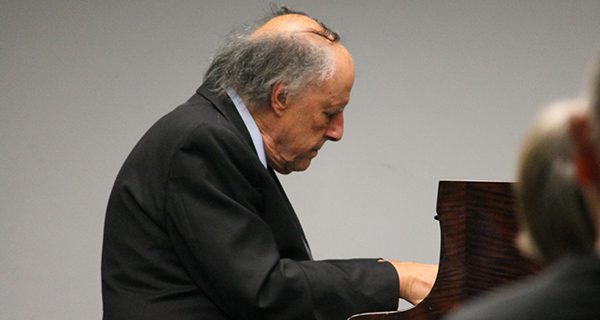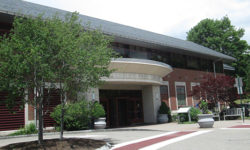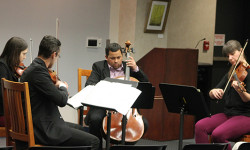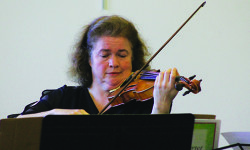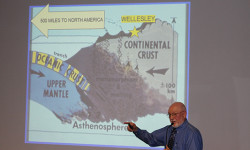[ccfic caption-text format="plaintext"]
By James Kinneen
Hometown Weekly Reporter
Thursday night at the Wellesley Library, Roman Rudnytsky, an American concert pianist of Ukrainian descent, performed a five-piece concert program featuring the works of Brahms, Beethoven, Albeniz, de Falla and Gottschalk.
A graduate of Julliard, Rudnytsky is Professor Emeritus of Youngstown State University’s Dana School of Music, where he received the Distinguished Professor Award for his concert activities. Mr. Rudnytsky had also served on the piano faculty at Indiana University, the University of Cincinnati College-Conservatory, and was “artist-in-residence” at two Indiana universities. Given this academic background, it was unsurprising that in addition to his impressive musical talent, the crowd would be treated to his thorough knowledge of music and piano history.
Rudnytsky began by noting how nice it was for him to be playing in a library instead of a large theatre or concert hall, as “we’re all relatively close to each other, which can create a different experience than being in a large concert hall.”
First, Rudnytsky would speak of “Beethoven’s biggest successor and the last of the three big B’s,” Johannes Brahms, and his “symphonic sound.” Rudnytsky would explain that during Brahms’ time, bitter musical battles were breaking out between the followers of Brahms and his Classical style and those of Wagner, “the great innovator,” and his new techniques. After the crowd had a good idea of what to expect from the piece and why it mattered in musical history, Rudnytsky played one of Brahms’ shorter pieces, “Rhapsody in G Minor, op. 79 no 2.”
Next would be Beethoven’s “Sonata in E Flat, op. 31 no 3.” Rudnytsky explained that if you wanted to track the progression of Beethoven as a musician, you could simply study these sonatas, but pointed out that the one he would be playing was unique. The sonata is one of very few that Beethoven wrote that are lighthearted and playful, with Rudnytsky noting that in a break with the Classical structure, “there’s virtually no slow movement in it.”
Rudnytsky then moved onto the Nationalistic movement, which is notable because its fare readily betrays its origin upon listening. To demonstrate this, he played the works of two Spanish composers: Isaac Albeniz and Manuel de Falla. Albeniz’s “Rondena” begins with a fandango, which should tip listeners off to the Spanish roots of the music - if the fact that it was from the composer’s work, “Iberia,” wasn’t enough of a hint.
While all his playing was impressive, this piece really stood out. According to Rudnytsky, Arthur Rubinstein complained of how difficult and complicated they were; Rudnytsky handled them with ease.
Finally, Rudnystsky finished the night with the work of an American, “the first internationally famous American composer,” New Orleans’ Louis Moreau Gottschalk. Rudnystsky played his work, “The Banjo,” while noting how it featured a clever play on “Camptown Races.”
On Thursday night, the Wellesley Library got a taste of what the students of Youngstown State have at their disposal: the breadth of musical knowledge and ability contained within Roman Rudnystsky.




